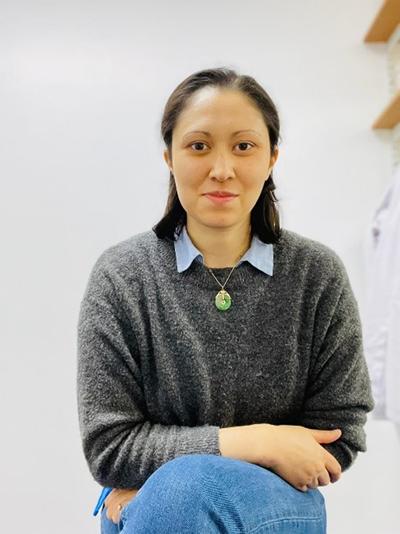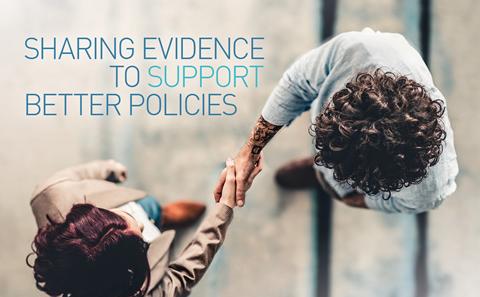
Policy Projects
Learn about PPS led current collaborative projects between the University of Southampton researchers and UK Government and Parliament.

Communicating your research and its importance can be daunting, but knowing your audience is potentially already divided, can be even more nerve-wracking. How do you engage effectively with the media, the public, and policymakers when discourse on your research is already polarised?
My research focusses on developing a device for the detection of a radioactive element that is produced in the nuclear power industry. When talking to people about my research, I frequently encounter misconceptions and negative views. Nuclear accidents such as Chernobyl and Fukushima can cast long shadows in public discourse, with dramatic and inaccurate TV adaptations reinforcing these assumptions.
Pithy soundbites are great for government, cool exhibits are fabulous for science festivals and talks on life changing aspects of your research are great for those already eager to listen, but what do you do when you encounter someone who is uneasy about your area of research or passionately against it? I remember sitting in a taxi just after the HBO miniseries ‘Chernobyl’ was released. The driver asked what I did, a wave of dread came over me, and I explained a little bit about my research. After a tense start to the conversation where the airport felt very far away, we eventually reached Departures comfortably discussing the uses of radioactivity in our everyday lives.
Despite this conversation ending well, when confronted with negative opinions about my research, I often felt unprepared to have these nuanced discussions. Prior to attending a Standing up for Science workshop hosted by Sense about Science, I had been involved in various public engagement initiatives. These events were generally pitched for an audience already interested in science and I always had reservations stepping outside this comfort zone. However, I found that after the workshop I had more confidence in how to approach these challenging conversations about my research and now follow the general rule: listen, validate, and address.
Listen
Listening, not waiting for the opportunity to immediately offer counter arguments, is vital to effective communication and key to building trust. If people do not trust you or feel that you are being insincere, they will not open up and everything you say afterwards will be missing the mark. Start building a foundation that people feel open enough to reconsider some of their concerns. Establishing a welcoming and respectful atmosphere is crucial as people may feel more comfortable elsewhere where their concerns can be reinforced.
Validate
Understand that these concerns have come from somewhere. It is important to validate lived experiences. This is where active listening is key, to make someone feel more at ease. Phrases like ‘I’d like to hear more about your concerns’ or ‘I’m interested and want to understand your concerns and why they are important to you’ can help someone feel heard and engaged with. Be mindful of personal and systemic history, there are communities who have a history of poor treatment by medicine and science and are legitimately wary.
Address
Dialogue can often lead to questions, which is your time to shine. This is not the time to launch into a monologue of myth –busting: try not to point out how someone is wrong, but do give perspective. Remember to be inclusive of risk that is linked to fears and concerns, because ignoring the existence of risk (if there is risk) or making it seem as if there is no risk at all will just compound fears and disrupt the trust you have built. Put perceived risk into perspective of what the greater actual risk is. If you are stuck on the receiving end of a never-ending monologue, try asking ‘would you change your mind with new information?’ and ‘what makes you trust this source more than others?’ to promote more critical evaluation.
Key points to remember:
1. Avoid shaming: those with deeply ingrained views will not be swayed and may use this to reinforce their perspective, while those on the fence are unlikely to be won over because of it.
2. Know when to let go: not everyone will be convinced. This does not mean you should become hostile. Be consistent, patient, and continue to build trust.
3. Do not present an argument that is not backed up by data, and if a particular question is outside your area of expertise, it is far better to admit this than present inaccurate information.
4. If whomever you are speaking to is combative or you feel uncomfortable, you can always disengage and leave.
You will not always have time for long conversations. In these situations, reframing your research to align with their concerns or politely addressing common misconceptions can leave a lasting impression. Even if you feel like you have not made progress, remember that even incremental change is a success when you are challenging years of distrust that has become entwined in someone’s identity. By taking the time to listen and engage those with concerns, this builds the confidence of the public and policymakers to pave the way for ambitious policies and research.
To help with communication in your research area, Sense about Science has a wide variety of ‘Making sense of’ resources covering different areas and common misconceptions. To find out more about Sense about Science and for more tips and advice, join their Voice of Young Science network of early career researchers.
Sarah Lu is a PhD student at the University of Southampton and VoYS member, developing novel microfluidic systems to detect and quantify difficult to measure radioactive isotopes.
Find out more

Learn about PPS led current collaborative projects between the University of Southampton researchers and UK Government and Parliament.

Click here to listen to our Policy Podcast series. In each episode we speak to UoS researchers and experts, about their experiences confronting critical issues in the domestic and foreign policies.

Guidance on the many channels available to researchers to engage with policymakers.

Guidance on things to consider in the science to policy process and useful tips in planning and costing your impact activities.